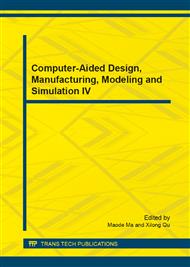p.124
p.129
p.134
p.139
p.145
p.151
p.155
p.160
p.165
Analysis on Financial Support Efficiency of Strategic Emerging Industries Based on DEA - Tobit Model
Abstract:
Cultivating and developing strategic emerging industries is very important for promoting the rapid transformation of economic development mode, and adjusting and optimizing the economic structure. Financial support plays the role of guidance and support in the development process of strategic emerging industries. Based on the measurement results for financial support of strategic emerging industries in Guangdong, the paper constructs Tobit model analyzing factors which influence efficiency. The empirical results indicate that the reason why the average value of comprehensive efficiency of financial support for strategic emerging industries in Guangdong is lower scale efficiency. Financial subsidy, tax preference and government procurement is good for improving the efficiency of financial support, and financial subsidy has the most evident effect. Therefore, we should use the means of marketization operation to improve the availability efficiency of financial fund, realize recycle of financial funds, and takes different financial support measures in different development stages of strategic emerging industries.
Info:
Periodical:
Pages:
145-150
Citation:
Online since:
October 2014
Authors:
Price:
Сopyright:
© 2014 Trans Tech Publications Ltd. All Rights Reserved
Share:
Citation:


